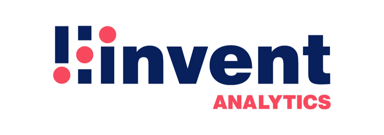GDPR Checklist: Requirements for Recruiters and HR
Hiring and managing employees involves a lot of personal information. HR and recruiting teams should handle that data with care and transparency for GDPR. No one wants to face those hefty fines or, even worse, a damaged employer brand.
So, to help you stay on the right side of the law (and keep candidates and employees happy), this checklist gives important GDPR tips specifically for recruiters and HR pros. ✨
Checklist
Always ask candidates for clear and explicit consent.
Be clear about why you’re collecting data.
Keep candidate data safe and limit who can access it.
Give candidates control over their own data.
Don’t keep candidate data longer than necessary.
Make sure your recruitment tools and partners follow GDPR rules.
Use encryption to protect sensitive candidate information.
Bring in a data protection expert.
Have a clear plan for data breaches.
Keep your GDPR policies fresh and relevant.
What is GDPR?
GDPR is a law introduced by the European Union to safeguard personal data. It applies to any organization that collects, processes, or stores data from EU citizens. For recruiters and HR professionals, this means handling candidate information in a lawful, transparent, and secure way. The law also gives individuals more control over their personal data, including the right to access, update, or delete it.
GDPR Checklist: Requirements for Recruiters and HR
1. Always ask candidates for clear and explicit consent.
Always get a proper green light from candidates before collecting their personal details. When you're drafting those consent forms, keep them crystal clear. Use plain language that tells people exactly what they're agreeing to.
Be upfront about everything. Let candidates know exactly what information you’re collecting, why you need it, who will have access to it, and how long you’ll keep it. Most importantly, consent should be a choice, not a requirement. Candidates should feel comfortable saying yes (or no) without any pressure.
2. Be clear about why you’re collecting data.
Every information you collect should have a specific and real purpose. This means carefully documenting why you're collecting each type of data. Also, make sure you're only collecting what's necessary for the hiring process.
For example, collecting work history is acceptable for most positions, but asking for personal interests might only be fitting if directly relevant to the role. Your organization should maintain a comprehensive data mapping document that outlines the entire data collection process.
3. Keep candidate data safe and limit who can access it.
Make sure your candidate data is well protected with strong security actions to prevent unauthorized access or accidental loss. This includes using secure applicant tracking systems like Hirex.
Keep sensitive data on a 'need-to-know' basis. Only people who really need that information for their job should have access to it. Think of your access controls like security clearances, with different levels depending on each person's role. And don't forget to schedule regular check-ups of your security systems. It's much better to spot and fix small cracks before they turn into major breaches.
4. Give candidates control over their own data.
Candidates have the right to control their personal data under GDPR, and you should respect that. They should be able to access their information easily, fix any errors, or ask for deletion without any problems. Make sure these processes are simple, transparent, and documented.
Your organization should also have a clear way to verify candidates’ identities before making any changes to their data. And don’t keep them waiting, make sure all requests are managed within the one-month deadline. All information should be clear and easy to understand.
5. Don’t keep candidate data longer than necessary.
Your organization needs to fix suitable retention periods for different types of candidate data and implement systems to ensure data is deleted when no longer needed. These retention periods should be based on business needs and legal requirements.
Conduct regular data audits to ensure compliance with retention policies and to identify and delete data that has overdid its retention period. To show compliance, document these audits and deletion actions.
6. Make sure your recruitment tools and partners follow GDPR rules.
If you work with third-party partners for hiring like recruitment agencies, background check companies, or assessment platforms, make sure they follow GDPR rules too. Anyone handling candidate data on your behalf needs to meet the same standards.
When drawing up contracts with your partners, make sure you clearly outline their data protection responsibilities. But, don't just set it and forget it, build in periodic compliance reviews to make sure they're holding up their end of the bargain. This way, you're not left in the dark about how they're handling sensitive information. Your organization should maintain an up-to-date register of all third-party partners who have candidate data and regularly review their compliance.
Regular checks of partner practices should be held to make sure they maintain appropriate security actions and handle candidate data in accordance with GDPR.
7. Use encryption to protect sensitive candidate information.
Advanced encryption protocols must be implemented for all sensitive candidate data, both when it's being transmitted and when it's stored. This includes using secure file transfer protocols when sharing candidate information. Also, make sure all HR systems have appropriate security certificates.
Your security actions should have regular system updates, patch management, and vulnerability assessments. You should also implement physical security actions to protect any paper records or devices that has candidate data.
Maintain detailed documentation of all security actions and regularly test their effectiveness through security audits. Response plans should be in place for potential security breaches or system failures.
8. Bring in a data protection expert.
You might need to bring in a Data Protection Officer depending on your organization's size. It is not legally required, but having someone responsible for overseeing data protection can be helpful.
You should also hold regular training sessions for all HR team members that handle candidate data. This training should cover GDPR principles, practical application in recruitment processes, security protocols, and incident response procedures. Training records should be maintained to demonstrate ongoing commitment to compliance.
Your Data Protection Officer or data protection team should have current knowledge of GDPR updates and procedures. They should also be a point of contact for candidates with inquiries or concerns regarding their data privacy.
9. Have a clear plan for data breaches.
If a data breach happens, your team should know exactly what to do, fast. Make sure your breach response plan spells out exactly how you'll spot, control, and report any incidents within that critical 72-hour window. It's vital that each team member knows their specific responsibilities .
Your response plan should include how to measure the level of a breach, let affected candidates know, and take the right steps to fix the issue. Running practice drills regularly can help your team stay ready to act quickly if needed.
Also, keep a record of everything like incident reports, notifications, and the steps taken to resolve the breach.
10. Keep your GDPR policies fresh and relevant.
Keep ongoing attention and regularly review policies for GDPR. Make it a habit to regularly check and update your data protection policies. Hiring practices change, new technology pops up, and legal requirements change, so your policies should keep up.
When there’s an update, don’t just send an email and leave it there. Make sure your team actually understands what’s changing and why. If needed, provide training to keep everyone on the same page. Keep a record of these updates to show that you're staying on top of compliance.
Also, don’t wait for problems to pop up, run regular checks to make sure everything is being followed correctly. These audits help catch any weak spots early and keep your hiring process secure.
Common GDPR Mistakes in Recruitment and How to Avoid Them
Many recruiters violate GDPR because of out-of-date practices or simply without noticing. 👇
One common mistake is collecting excessive data without a clear purpose. To avoid this, always define the necessity of each data point before requesting it from candidates.
Another frequent issue is failing to obtain explicit consent. Relying on implied or blanket consent clauses can lead to non-compliance. Always ensure candidates give clear, affirmative consent before processing their data.
Storing data indefinitely is another major pitfall. Recruiters usually forget to delete outdated candidate records and increase the risk of data breaches. Implement a clear data retention policy and periodically get rid of unnecessary records.
Finally, many HR teams overlook the compliance of third-party vendors. Using recruitment software that does not meet GDPR standards can expose organizations to legal consequences. Always verify that external providers manage data in accordance with GDPR.
Conclusion
GDPR compliance is a key responsibility for recruiters and HR professionals. Protect candidate data, build trust, and avoid costly penalties by following this checklist. Data privacy should be an ongoing priority. Creating GDPR compliance protects businesses and improves their brand as ethical employers.
HR teams can create a recruitment process that respects candidates' rights and complies with international data protection standards by proactively implementing strong data protection measures. 🎉
For more HR insights, checklists, and tips, visit Hirex.
Contents
Get a demo
- Quickly find top candidates with smart application management
- Improve team collaboration using built-in communication and workflows
- Offer a smooth candidate experience to strengthen your employer brand
- Count on 24/7 support for a hassle-free hiring process
- Quickly find top candidates with smart application management
- Improve team collaboration using built-in communication and workflows
- Offer a smooth candidate experience to strengthen your employer brand
- Count on 24/7 support for a hassle-free hiring process
"We truly felt the speed difference. Everything was smoother, and candidate feedback was much more positive. It made our jobs easier."

Trusted by 100+ teams
Get Informed,F.A.Q.
Revolutionize your hiring process with our transformative Applicant Tracking System (ATS.)















